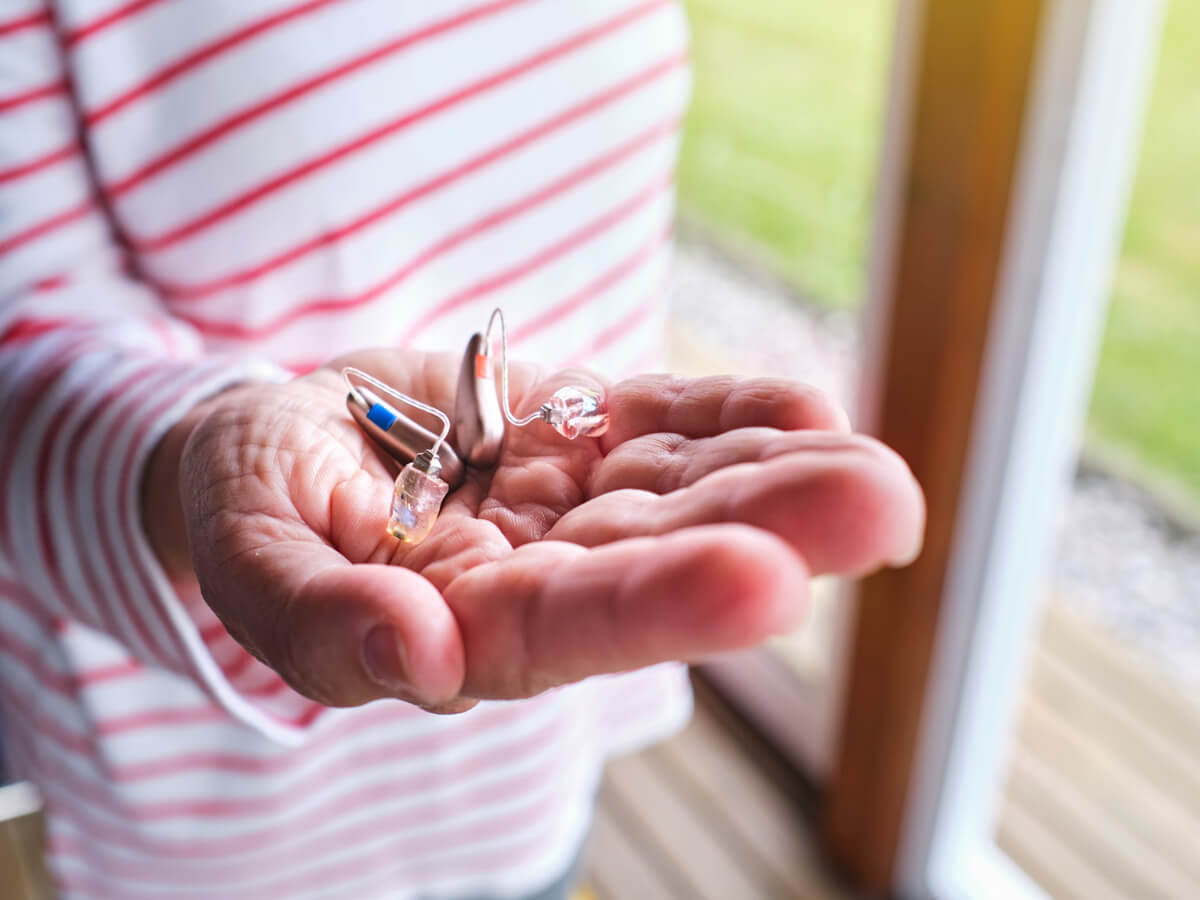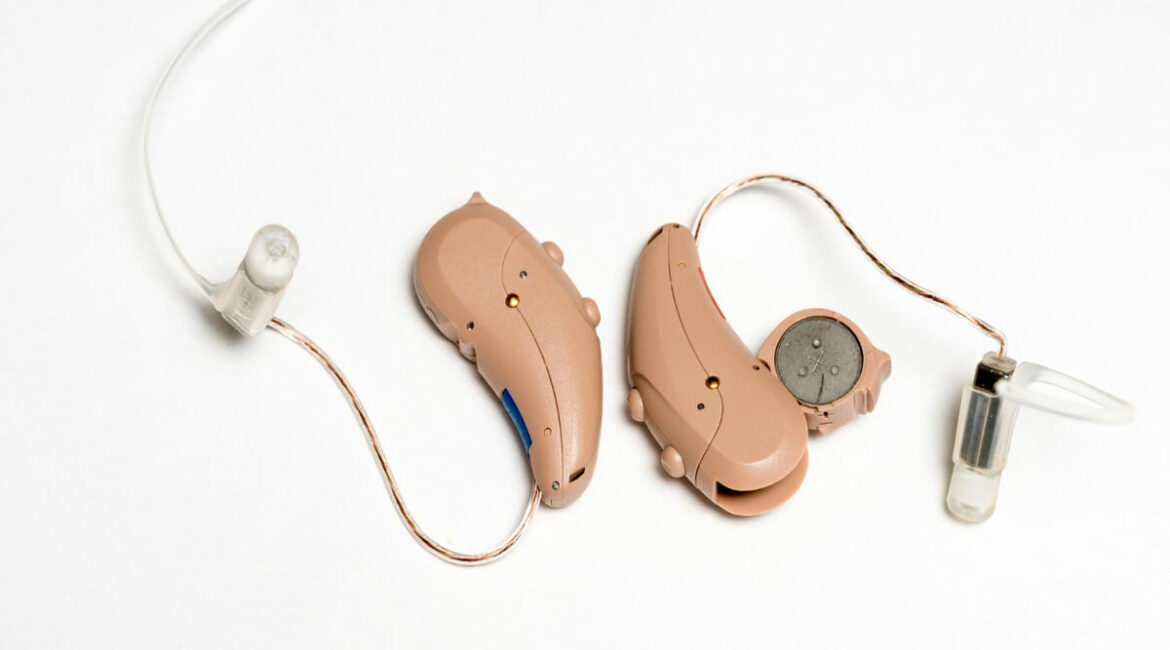Because many factors impact battery life, there is no precise answer to how long hearing aid batteries last, just an estimate. Usually, the ‘shelf-life’ of the majority of batteries is three years.
The Average Lifespan of Hearing Aid Battery
Hearing aid batteries typically last between 3 and 22 days, depending on the type of hearing aid, the capacity of the battery, and the quantity of use.
There are four standard battery sizes for hearing aids: 10, 312, 13, and 675. The results of each are as follows:
- The typical life of a size 10 battery is 60 hours. This translates to nearly 4 days of battery life, split by a 13-hour day.
- Size 312 batteries typically last 73 hours, which, when divided by 13, results in approximately 5 days of battery life.
- Size 13 batteries usually last for roughly 117 hours, divided by 13, resulting in 9 days of battery life.
- Size 675 batteries typically last for 154 hours, divided by 13, resulting in a battery life of 12 days.
Read more: Hearing Aid Batteries
Factors Affect How Long a Hearing Aid Battery Will Last
There are many factors that affect how long a hearing aid battery will last. The size of the battery, the freshness of the hearing aid, and the environment in which the hearing aid is worn all play a role in how long the battery will last. Let’s take a look at some of these factors.
The Battery’s Size
As was previously mentioned, there are several sizes of hearing aid batteries. The amount of energy stored in each battery cell depends on its size. Generally speaking, the life of a hearing aid battery increases with height. Your hearing aid’s battery size requirements will determine the extent of the storm you need.
The Freshness of the Battery
Unused zinc-air batteries lose their charge over time, like most other batteries. With the tab in place, a hearing aid battery typically loses less than 10% of its charge annually. It is preferable to purchase batteries in small quantities instead of large ones to get the most out of them.
The best before date is printed on the pack’s reverse. To obtain the maximum performance from your battery stock, attempt to utilise the oldest batteries first.
Your Degree of Hearing Loss
Your hearing aid can need extra power, depending on your hearing loss. This is a significant aspect, and because it varies on the user, it is sometimes challenging to estimate precise battery life.
Your Device
Your hearing aid will need more power as it becomes more sophisticated. Digital gadgets may feature Bluetooth connection, wireless streaming, or noise cancelling. Any combination of these elements needs a larger current to operate. These features cause your battery to discharge faster, just like many apps running simultaneously on a mobile device.
Your Usage
The battery will discharge more quickly the more you use your hearing aid. When not in use, it is advised that you turn off your smartphone, access the battery drawer, or remove the battery (i.e. overnight).
Your Immediate Environment
The longevity of your hearing aid battery is influenced by humidity, temperature, and altitude. Your batteries’ lifespan may be shortened by air that is too dry or too moist. Batteries will lose capacity in dry settings, while condensation will form in humid ones, shortening their lifespan.
Similarly, the performance of the hearing aid battery is directly impacted by temperature. Battery performance is best between 10 and 25 degrees Celsius.
High altitude regions could have lower oxygen levels than areas closer to sea level. This can make it difficult for a hearing aid battery to give it the power it needs to function correctly.
Tips to Make the Hearing Aid Battery Last Longer

If you’re like most people, you want your hearing aid battery to last as long as possible. Here are some tips to make the battery last longer:
Give the Battery Three to Five Minutes to ‘Breathe’
Before inserting the battery into your hearing aid, wait three to five minutes after removing the tab from the battery. During this “activation” period, air can enter the battery and activate the components.
Thoroughly Wash Your Hands Before Changing the Batteries
The hearing aid might be harmed by grease and debris on the batteries. Additionally, grime and oil might obstruct the battery’s air pores.
Use a Dehumidifier for Hearing Aids
A dehumidifier for hearing aids can assist remove moisture from the battery and hearing aid. This will make it possible to utilise battery power more effectively. Your hearing aids will stay in pristine condition inside the dehumidifier.
If You Aren’t Using the Gadget for a Long Time, Altogether Remove the Batteries
Additionally, this lessens the likelihood of corrosion and moisture-related damage.
Leave the Stickers Affixed to the Battery
The battery is kept “fresh” via the sticker tab. When the sticker is taken off, the hearing aid battery begins to deplete because it is turned on. Make careful to wait until you need to use the battery before peeling the sticker tab off.
Store the Batteries in a Dry, Cold Environment
Extreme temperatures might shorten the battery’s life and cause it to drain new, unused batteries.
Invest in a Hearing Aid With a Rechargeable Battery
Rechargeable hearing aids are beginning to appear on the market. Rechargeable hearing aids enable you to charge them overnight and use them for the entire day. Annual replacement is required for rechargeable batteries. Speak with your hearing healthcare provider if you’re interested in learning more about the new technology.
How Can You Tell When It’s Time to Change the Hearing Aid Battery
If you’re like most people who wear hearing aids, you know that at some point your hearing aid battery will need to be replaced. How do you know when it’s time for a new battery? And how can you tell if the battery is still usable or not?
The “Low Battery” Warning Appears
Depending on your specific hearing aids, a beep or voice alarm might mean “low battery.” It’s time to swap out your hearing aid batteries if you hear this warning.
Your Hearing Instrument Is Not Loud Enough
You’ll start to become aware of loudness variations as you become used to using hearing aids. Make sure the hearing aids are clear of any obstructions or debris first. Check your batteries next. A depleted battery can also bring on performance fluctuations.
Your Hearing Aids Aren’t Performing Consistently
It’s crucial to check your hearing aid battery life if the sound quality or level of your hearing aids seems irregular. Low hearing aid batteries may cause inconsistent operation.
Alternative to Traditional Disposable Battery Hearing Aids
The best hearing aid for you and which rechargeable batteries are preferable for you should be discussed in-depth with your hearing care professional because there are many other considerations to consider when purchasing a hearing aid. To simplify your life, switch to rechargeable batteries instead of disposable batteries.
If you have any worries or inquiries concerning your hearing aid or batteries, always visit our audiologist at J Glasses & Hearing. We aim to increase public awareness of hearing aids in Singapore while keeping prices low.
Contact us to get the best hearing aids today.

